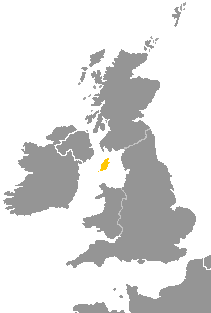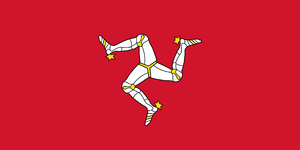Manx Language Revival
Manx or Manx Gaelic (Endonym: Gaelg [gilg, geːlg] / Gailck [gilk]) is a Goidelic Celtic language of the Isle of Man and the historic language of the Manx people. It is closely related and partially mutually intelligible to Irish and Scottish Gaelic.
History
Starting in the 17th century, English was promoted as the language of use in education and religion. The growth of English and decline of Manx continued until in 1931, less than 1% of the Manx population spoke Manx. The last native speaker, Ned Maddrell, died in 1974.
In 2009, the UNESCO Atlas of the World's Languages in Danger declared Manx an extinct language, though it has never fully fallen out of use.
Revival
In 1899, Yn Çheshaght Ghailckagh (Manx Language Society) was founded to promote the Manx language and Manx culture. In its early years, the society was focused mostly on Manx as a scholarly interest, but in 1948, together with Coimisiún Béaloideasa Éireann (Irish Folklore Commission) began to document and record native Manx speakers, though this task was restricted by limited finances. (CITATION)
In the 1970s, Manx language activist Douglas Fargher began organizing Oieghyn Gaelgagh (Manx Language Nights), broadcasting weekly educational radio programmes, and publishing educational materials, including Undin, a spoken dictionary. (Broderick 2013)
In 1979, Fargher published the first modern Manx language dictionary. Fargher intentionally avoided including attested words that were loans from English, and in some cases instead invented new words or imported Irish or Scottish Gaelic terms. Fargher acknowledged his prescriptivist view on the "purity" of his Gaelic-derived terms, and noted that his dictionary was not one that represented actual use at any point in time. (Lewin 2017, 104-107) Fargher died in 1987.
In 1982, Undinys Eiraght Vannin (Manx Heritage Foundation) was created by the government of the Isle of Man to help promote Manx culture, heritage, and language.
In 1996, Feailley Ghaelgagh (Manx Language Festival) was founded by Phil Gawne, a Manx nationalist and future Minister in the Isle of Manx government. This festival, later renamed the Cooish, a Manx word for 'a chat, meeting, cause, issue, get-together', became important in promoting awareness of the Manx language. The Cooish, now organized by Yn Çheshaght Ghailckagh and Undinys Eiraght Vannin, offers language and writing workshops, information sessions, concerts, and informal sessions for practicing speaking Manx. (CITATION)
In 2009, Manx was declared an extinct language in UNESCO's Atlas of the World's Languages in Danger. By April 2015, this had been amended to "critically endangered".
George, Broderick (2013). "Neologisms in Revived Manx Gaelic". Studia Celtica Fennica: 7–29.
Lewin, C. (2017). Scholarship and language revival: Language ideologies in corpus development for revived Manx. Studia Celtica Posnaniensia, 2(1), 97–118. https://doi.org/10.1515/scp-2017-0006

